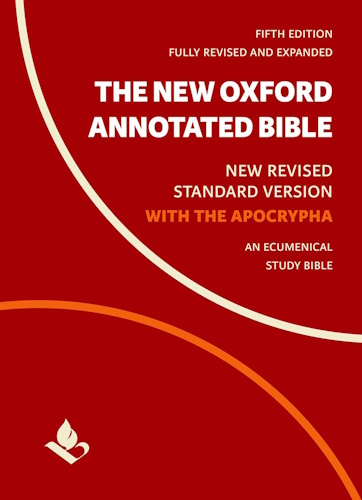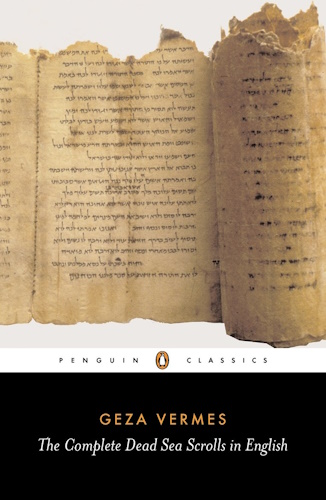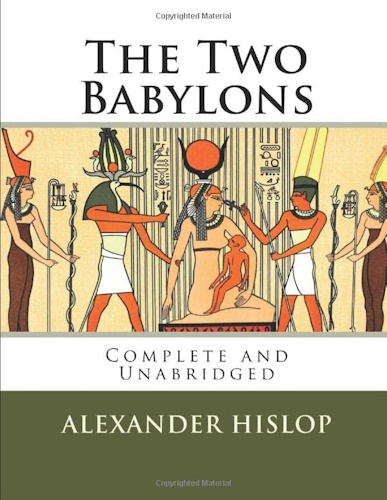
![]()
![]()
Chapter II
Section II
Sub-Section IV
The Death of the Child
How Nimrod died, Scripture is entirely silent. There was an ancient tradition that he came to a violent end. The circumstances of that end, however, as antiquity represents them, are clouded with fable. It is said that tempests of wind sent by God against the Tower of Babel overthrew it, and that Nimrod perished in its ruins. This could not be true, for we have sufficient evidence that the Tower of Babel stood long after Nimrod's day. Then, in regard to the death of Ninus, profane history speaks darkly and mysteriously, although one account tells of his having met with a violent death similar to that of Pentheus, Lycurgus, * and Orpheus, who were said to have been torn in pieces. **
* Lycurgus, who is commonly made the enemy of Bacchus, was, by the Thracians and Phrygians, identified with Bacchus, who it is well known, was torn in pieces.
** LUDOVICUS VIVES, Commentary on Augustine. Ninus as referred to by Vives is called "King of India." The word "India" in classical writers, though not always, yet commonly means Ethiopia, or the land of Cush. Thus the Choaspes in the land of the eastern Cushites is called an "Indian River" (DIONYSIUS AFER. Periergesis); and the Nile is said by Virgil to come from the "coloured Indians" (Georg)--i.e., from the Cushites, or Ethiopians of Africa. Osiris also is by Diodorus Siculus (Bibliotheca), called "an Indian by extraction." There can be no doubt, then, that "Ninus, king of India," is the Cushite or Ethiopian Ninus.
The identity of Nimrod, however, and the Egyptian Osiris, having been established, we have thereby light as to Nimrod's death. Osiris met with a violent death, and that violent death of Osiris was the central theme of the whole idolatry of Egypt. If Osiris was Nimrod, as we have seen, that violent death which the Egyptians so pathetically deplored in their annual festivals was just the death of Nimrod. The accounts in regard to the death of the god worshipped in the several mysteries of the different countries are all to the same effect. A statement of Plato seems to show, that in his day the Egyptian Osiris was regarded as identical with Tammuz; * and Tammuz is well known to have been the same as Adonis, the famous HUNTSMAN, for whose death Venus is fabled to have made such bitter lamentations.
* See WILKINSON'S Egyptians. The statement of Plato amounts to this, that the famous Thoth was a counsellor of Thamus, king of Egypt. Now Thoth is universally known as the "counsellor" of Osiris. Hence it may be concluded that Thamus and Osiris are the same.
As the women of Egypt wept for Osiris, as the Phoenician and Assyrian women wept for Tammuz, so in Greece and Rome the women wept for Bacchus, whose name, as we have seen, means "The bewailed," or "Lamented one." And now, in connection with the Bacchanal lamentations, the importance of the relation established between Nebros, "The spotted fawn," and Nebrod, "The mighty hunter," will appear. The Nebros, or "spotted fawn," was the symbol of Bacchus, as representing Nebrod or Nimrod himself. Now, on certain occasions, in the mystical celebrations, the Nebros, or "spotted fawn," was torn in pieces, expressly, as we learn from Photius, as a commemoration of what happened to Bacchus, * whom that fawn represented.
* Photius, under the head "Nebridzion" quotes Demosthenes as saying that "spotted fawns (or nebroi) were torn in pieces for a certain mystic or mysterious reason"; and he himself tells us that "the tearing in pieces of the nebroi (or spotted fawns) was in imitation of the suffering in the case of Dionysus" or Bacchus. (PHOTIUS, Lexicon)
The tearing in pieces of Nebros, "the spotted one," goes to confirm the conclusion, that the death of Bacchus, even as the death of Osiris, represented the death of Nebrod, whom, under the very name of "The Spotted one," the Babylonians worshipped. Though we do not find any account of Mysteries observed in Greece in memory of Orion, the giant and mighty hunter celebrated by Homer, under that name, yet he was represented symbolically as having died in a similar way to that in which Osiris died, and as having then been translated to heaven. *
* See OVID'S Fasti. Ovid represents Orion as so puffed up with pride on account of his great strength, as vain-gloriously to boast that no creature on earth could cope with him, whereupon a scorpion appeared, "and," says the poet, "he was added to the stars." The name of a scorpion in Chaldee is Akrab; but Ak-rab, thus divided, signifies "THE GREAT OPPRESSOR," and this is the hidden meaning of the Scorpion as represented in the Zodiac. That sign typifies him who cut off the Babylonian god, and suppressed the system he set up. It was while the sun was in Scorpio that Osiris in Egypt "disappeared" (WILKINSON), and great lamentations were made for his disappearance. Another subject was mixed up with the death of the Egyptian god; but it is specially to be noticed that, as it was in consequence of a conflict with a scorpion that Orion was "added to the stars," so it was when the scorpion was in the ascendant that Osiris "disappeared."
From Persian records we are expressly assured that it was Nimrod who was deified after his death by the name of Orion, and placed among the stars. Here, then, we have large and consenting evidence, all leading to one conclusion, that the death of Nimrod, the child worshipped in the arms of the goddess-mother of Babylon, was a death of violence.
Now, when this mighty hero, in the midst of his career of glory, was suddenly cut off by a violent death, great seems to have been the shock that the catastrophe occasioned. When the news spread abroad, the devotees of pleasure felt as if the best benefactor of mankind were gone, and the gaiety of nations eclipsed. Loud was the wail that everywhere ascended to heaven among the apostates from the primeval faith for so dire a catastrophe. Then began those weepings for Tammuz, in the guilt of which the daughters of Israel allowed themselves to be implicated, and the existence of which can be traced not merely in the annals of classical antiquity, but in the literature of the world from Ultima Thule to Japan.
Of the prevalence of such weepings in China, thus speaks the Rev. W. Gillespie: "The dragon-boat festival happens in midsummer, and is a season of great excitement. About 2000 years ago there lived a young Chinese Mandarin, Wat-yune, highly respected and beloved by the people. To the grief of all, he was suddenly drowned in the river. Many boats immediately rushed out in search of him, but his body was never found. Ever since that time, on the same day of the month, the dragon-boats go out in search of him." "It is something," adds the author, "like the bewailing of Adonis, or the weeping for Tammuz mentioned in Scripture." As the great god Buddh is generally represented in China as a Negro, that may serve to identify the beloved Mandarin whose loss is thus annually bewailed. The religious system of Japan largely coincides with that of China. In Iceland, and throughout Scandinavia, there were similar lamentations for the loss of the god Balder. Balder, through the treachery of the god Loki, the spirit of evil, according as had been written in the book of destiny, "was slain, although the empire of heaven depended on his life." His father Odin had "learned the terrible secret from the book of destiny, having conjured one of the Volar from her infernal abode. All the gods trembled at the knowledge of this event. Then Frigga [the wife of Odin] called on every object, animate and inanimate, to take an oath not to destroy or furnish arms against Balder. Fire, water, rocks, and vegetables were bound by this solemn obligation. One plant only, the mistletoe, was overlooked. Loki discovered the omission, and made that contemptible shrub the fatal weapon.
Among the warlike pastimes of Valhalla [the assembly of the gods] one was to throw darts at the invulnerable deity, who felt a pleasure in presenting his charmed breast to their weapons. At a tournament of this kind, the evil genius putting a sprig of the mistletoe into the hands of the blind Hoder, and directing his aim, the dreaded prediction was accomplished by an unintentional fratricide. The spectators were struck with speechless wonder; and their misfortune was the greater, that no one, out of respect to the sacredness of the place, dared to avenge it. With tears of lamentation they carried the lifeless body to the shore, and laid it upon a ship, as a funeral pile, with that of Nanna his lovely bride, who had died of a broken heart. His horse and arms were burnt at the same time, as was customary at the obsequies of the ancient heroes of the north." Then Frigga, his mother, was overwhelmed with distress. "Inconsolable for the loss of her beautiful son," says Dr. Crichton, "she despatched Hermod (the swift) to the abode of Hela [the goddess of Hell, or the infernal regions], to offer a ransom for his release. The gloomy goddess promised that he should be restored, provided everything on earth were found to weep for him. Then were messengers sent over the whole world, to see that the order was obeyed, and the effect of the general sorrow was 'as when there is a universal thaw.'" There are considerable variations from the original story in these two legends; but at bottom the essence of the stories is the same, indicating that they must have flowed from one fountain.
![]()
![]()
Disclaimer:
Some material presented will contain links, quotes, ideologies, etc., the contents of which should be understood to first, in their whole, reflect the views or opinions of their editors, and second, are used in my personal research as "fair use" sources only, and not espousement one way or the other. Researching for 'truth' leads one all over the place...a piece here, a piece there. As a researcher, I hunt, gather and disassemble resources, trying to put all the pieces into a coherent and logical whole. I encourage you to do the same. And please remember, these pages are only my effort to collect all the pieces I can find and see if they properly fit into the 'reality aggregate'.
Personal Position:
I've come to realize that 'truth' boils down to what we 'believe' the facts we've gathered point to. We only 'know' what we've 'experienced' firsthand. Everything else - what we read, what we watch, what we hear - is what someone else's gathered facts point to and 'they' 'believe' is 'truth', so that 'truth' seems to change in direct proportion to newly gathered facts divided by applied plausibility. Though I believe there is 'truth', until someone representing the celestial realm visibly appears and presents the heavenly records of Facts And Lies In The Order They Happened, I can't know for sure exactly what "the whole truth' on any given subject is, and what applies to me applies to everyone. Until then I'll continue to ask, "what does The Urantia Book say on the subject?"
~Gail Bird Allen
![]()
![]()
-
Urantia Book, 44:0.11 - The Celestial Artisans
Never in your long ascendancy will you lose the power to recognize your associates of former existences. Always, as you ascend inward in the scale of life, will you retain the ability to recognize and fraternize with the fellow beings of your previous and lower levels of experience. Each new translation or resurrection will add one more group of spirit beings to your vision range without in the least depriving you of the ability to recognize your friends and fellows of former estates.
-
Princess Bride 1987 Wallace Shawn (Vizzini) and Mandy Patinkin (Inigo Montoya)
Vizzini: HE DIDN'T FALL? INCONCEIVABLE.
Inigo Montoya: You keep using that word. I do not think it means what you think it means. -
Urantia Book, 117:4.14 - The Finite God
And here is mystery: The more closely man approaches God through love, the greater the reality -- actuality -- of that man. The more man withdraws from God, the more nearly he approaches nonreality -- cessation of existence. When man consecrates his will to the doing of the Father's will, when man gives God all that he has, then does God make that man more than he is.
-
Urantia Book, 167:7.4 - The Talk About Angels
"And do you not remember that I said to you once before that, if you had your spiritual eyes anointed, you would then see the heavens opened and behold the angels of God ascending and descending? It is by the ministry of the angels that one world may be kept in touch with other worlds, for have I not repeatedly told you that I have other sheep not of this fold?"
-
Urantia Book, Foreword - 0:12.12 - The Trinities
But we know that there dwells within the human mind a fragment of God, and that there sojourns with the human soul the Spirit of Truth; and we further know that these spirit forces conspire to enable material man to grasp the reality of spiritual values and to comprehend the philosophy of universe meanings. But even more certainly we know that these spirits of the Divine Presence are able to assist man in the spiritual appropriation of all truth contributory to the enhancement of the ever-progressing reality of personal religious experience—God-consciousness.
-
Urantia Book, 1:4.3 - The Mystery Of God
When you are through down here, when your course has been run in temporary form on earth, when your trial trip in the flesh is finished, when the dust that composes the mortal tabernacle "returns to the earth whence it came"; then, it is revealed, the indwelling "Spirit shall return to God who gave it." There sojourns within each moral being of this planet a fragment of God, a part and parcel of divinity. It is not yet yours by right of possession, but it is designedly intended to be one with you if you survive the mortal existence.
-
Urantia Book, 1:4.1 - The Mystery Of God
And the greatest of all the unfathomable mysteries of God is the phenomenon of the divine indwelling of mortal minds. The manner in which the Universal Father sojourns with the creatures of time is the most profound of all universe mysteries; the divine presence in the mind of man is the mystery of mysteries.
-
Urantia Book, 1:4.6 - The Mystery Of God
To every spirit being and to every mortal creature in every sphere and on every world of the universe of universes, the Universal Father reveals all of his gracious and divine self that can be discerned or comprehended by such spirit beings and by such mortal creatures. God is no respecter of persons, either spiritual or material. The divine presence which any child of the universe enjoys at any given moment is limited only by the capacity of such a creature to receive and to discern the spirit actualities of the supermaterial world.
-
Urantia Book, 11:0.1 - The Eternal Isle Of Paradise
Paradise is the eternal center of the universe of universes and the abiding place of the Universal Father, the Eternal Son, the Infinite Spirit, and their divine co-ordinates and associates. This central Isle is the most gigantic organized body of cosmic reality in all the master universe. Paradise is a material sphere as well as a spiritual abode. All of the intelligent creation of the Universal Father is domiciled on material abodes; hence must the absolute controlling center also be material, literal. And again it should be reiterated that spirit things and spiritual beings are real.
-
Urantia Book, 50:6.4 - Planetary Culture
Culture presupposes quality of mind; culture cannot be enhanced unless mind is elevated. Superior intellect will seek a noble culture and find some way to attain such a goal. Inferior minds will spurn the highest culture even when presented to them ready-made.
-
Urantia Book, 54:1.6 - True And False Liberty
True liberty is the associate of genuine self-respect; false liberty is the consort of self-admiration. True liberty is the fruit of self-control; false liberty, the assumption of self-assertion. Self-control leads to altruistic service; self-admiration tends towards the exploitation of others for the selfish aggrandizement of such a mistaken individual as is willing to sacrifice righteous attainment for the sake of possessing unjust power over his fellow beings.
-
Urantia Book, 54:1.9 - True And False Liberty
How dare the self-willed creature encroach upon the rights of his fellows in the name of personal liberty when the Supreme Rulers of the universe stand back in merciful respect for these prerogatives of will and potentials of personality! No being, in the exercise of his supposed personal liberty, has a right to deprive any other being of those privileges of existence conferred by the Creators and duly respected by all their loyal associates, subordinates, and subjects.
-
Urantia Book, 54:1.8 - True And False Liberty
There is no error greater than that species of self-deception which leads intelligent beings to crave the exercise of power over other beings for the purpose of depriving these persons of their natural liberties. The golden rule of human fairness cries out against all such fraud, unfairness, selfishness, and unrighteousness.



































